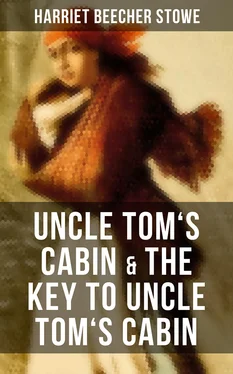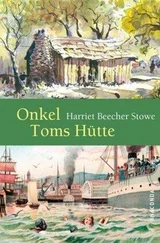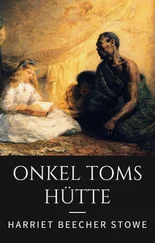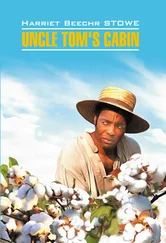"The fact is my father showed the exact sort of talent for a statesman. He could have divided Poland as easily as an orange, or trod on Ireland as quietly and systematically as any man living. At last my mother gave up, in despair. It never will be known, till the last account, what noble and sensitive natures like hers have felt, cast, utterly helpless, into what seems to them an abyss of injustice and cruelty, and which seems so to nobody about them. It has been an age of long sorrow of such natures, in such a hell-begotten sort of world as ours. What remained for her, but to train her children in her own views and sentiments? Well, after all you say about training, children will grow up substantially what they are by nature, and only that. From the cradle, Alfred was an aristocrat; and as he grew up, instinctively, all his sympathies and all his reasonings were in that line, and all mother's exhortations went to the winds. As to me, they sunk deep into me. She never contradicted, in form, anything my father said, or seemed directly to differ from him; but she impressed, burnt into my very soul, with all the force of her deep, earnest nature, an idea of the dignity and worth of the meanest human soul. I have looked in her face with solemn awe, when she would point up to the stars in the evening, and say to me, 'See there, Auguste! the poorest, meanest soul on our place will be living, when all these stars are gone forever,—will live as long as God lives!'
"She had some fine old paintings; one, in particular, of Jesus healing a blind man. They were very fine, and used to impress me strongly. 'See there, Auguste,' she would say; 'the blind man was a beggar, poor and loathsome; therefore, he would not heal him afar off! He called him to him, and put his hands on him! Remember this, my boy.' If I had lived to grow up under her care, she might have stimulated me to I know not what of enthusiasm. I might have been a saint, reformer, martyr,—but, alas! alas! I went from her when I was only thirteen, and I never saw her again!"
St. Clare rested his head on his hands, and did not speak for some minutes. After a while, he looked up, and went on:
"What poor, mean trash this whole business of human virtue is! A mere matter, for the most part, of latitude and longitude, and geographical position, acting with natural temperament. The greater part is nothing but an accident! Your father, for example, settles in Vermont, in a town where all are, in fact, free and equal; becomes a regular church member and deacon, and in due time joins an Abolition society, and thinks us all little better than heathens. Yet he is, for all the world, in constitution and habit, a duplicate of my father. I can see it leaking out in fifty different ways,—just the same strong, overbearing, dominant spirit. You know very well how impossible it is to persuade some of the folks in your village that Squire Sinclair does not feel above them. The fact is, though he has fallen on democratic times, and embraced a democratic theory, he is to the heart an aristocrat, as much as my father, who ruled over five or six hundred slaves."
Miss Ophelia felt rather disposed to cavil at this picture, and was laying down her knitting to begin, but St. Clare stopped her.
"Now, I know every word you are going to say. I do not say they were alike, in fact. One fell into a condition where everything acted against the natural tendency, and the other where everything acted for it; and so one turned out a pretty wilful, stout, overbearing old democrat, and the other a wilful, stout old despot. If both had owned plantations in Louisiana, they would have been as like as two old bullets cast in the same mould."
"What an undutiful boy you are!" said Miss Ophelia.
"I don't mean them any disrespect," said St. Clare. "You know reverence is not my forte. But, to go back to my history:
"When father died, he left the whole property to us twin boys, to be divided as we should agree. There does not breathe on God's earth a nobler-souled, more generous fellow, than Alfred, in all that concerns his equals; and we got on admirably with this property question, without a single unbrotherly word or feeling. We undertook to work the plantation together; and Alfred, whose outward life and capabilities had double the strength of mine, became an enthusiastic planter, and a wonderfully successful one.
"But two years' trial satisfied me that I could not be a partner in that matter. To have a great gang of seven hundred, whom I could not know personally, or feel any individual interest in, bought and driven, housed, fed, worked like so many horned cattle, strained up to military precision,—the question of how little of life's commonest enjoyments would keep them in working order being a constantly recurring problem,—the necessity of drivers and overseers,—the ever-necessary whip, first, last, and only argument,—the whole thing was insufferably disgusting and loathsome to me; and when I thought of my mother's estimate of one poor human soul, it became even frightful!
"It's all nonsense to talk to me about slaves enjoying all this! To this day, I have no patience with the unutterable trash that some of your patronizing Northerners have made up, as in their zeal to apologize for our sins. We all know better. Tell me that any man living wants to work all his days, from day-dawn till dark, under the constant eye of a master, without the power of putting forth one irresponsible volition, on the same dreary, monotonous, unchanging toil, and all for two pairs of pantaloons and a pair of shoes a year, with enough food and shelter to keep him in working order! Any man who thinks that human beings can, as a general thing, be made about as comfortable that way as any other, I wish he might try it. I'd buy the dog, and work him, with a clear conscience!"
"I always have supposed," said Miss Ophelia, "that you, all of you, approved of these things, and thought them right—according to Scripture."
"Humbug! We are not quite reduced to that yet. Alfred who is as determined a despot as ever walked, does not pretend to this kind of defence;—no, he stands, high and haughty, on that good old respectable ground, the right of the strongest; and he says, and I think quite sensibly, that the American planter is 'only doing, in another form, what the English aristocracy and capitalists are doing by the lower classes;' that is, I take it, appropriating them, body and bone, soul and spirit, to their use and convenience. He defends both,—and I think, at least, consistently. He says that there can be no high civilization without enslavement of the masses, either nominal or real. There must, he says, be a lower class, given up to physical toil and confined to an animal nature; and a higher one thereby acquires leisure and wealth for a more expanded intelligence and improvement, and becomes the directing soul of the lower. So he reasons, because, as I said, he is born an aristocrat;—so I don't believe, because I was born a democrat."
"How in the world can the two things be compared?" said Miss Ophelia. "The English laborer is not sold, traded, parted from his family, whipped."
"He is as much at the will of his employer as if he were sold to him. The slave-owner can whip his refractory slave to death,—the capitalist can starve him to death. As to family security, it is hard to say which is the worst,—to have one's children sold, or see them starve to death at home."
"But it's no kind of apology for slavery, to prove that it isn't worse than some other bad thing."
"I didn't give it for one,—nay, I'll say, besides, that ours is the more bold and palpable infringement of human rights; actually buying a man up, like a horse,—looking at his teeth, cracking his joints, and trying his paces and then paying down for him,—having speculators, breeders, traders, and brokers in human bodies and souls,—sets the thing before the eyes of the civilized world in a more tangible form, though the thing done be, after all, in its nature, the same; that is, appropriating one set of human beings to the use and improvement of another without any regard to their own."
Читать дальше












